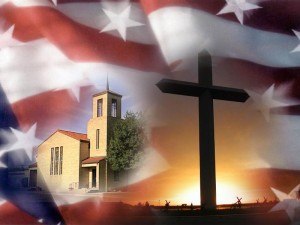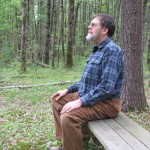P { margin-bottom: 0.08in;
to stay low to the Truth, not to hide it or apologize for it. …Do not share one syllable more of your Scriptures than the “Spirit that gave them forth” is speaking in you–but equally, do not share one syllable less.
And for all Quakers, Christian or non-Christian, I’m suggesting that
When speaking from Spirit, we use whatever language That Spirit lends us–and that we remember that the standard is not to be “nice” to anyone: be bold! But do not speak beyond what is given you to say: be low.
It’s not enough to speak your truth, as you experienced it once, years ago. You must speak from love, in the present moment, and from Spirit, also in the present moment.
Is there more? What else do I need from Christian Quakers, specifically?
I want you to understand that, as a Christian, even as a Quaker Christian, you possess a significant amount of privilege in our society.
No movie or television character will share my religion, unless it is the defining characteristic–generally negative–of who they are. There are almost no elected officials who share my religion, and a number of elected officials would like to strip me of my right to exercise my religion freely. If a member of my religion commits a crime, that crime is attributed in part to our shared religion. All these things are commonplace to religious minorities in our culture–but outside the daily experience of Christians.
I hope it is not necessary to remind anyone here of the long and painful history of mission and empire that Christianity has been part of. Do I need to explain that it is still the case that those of us who are not Christian are often treated like second-class citizens? As a Pagan, I am susceptible to being fired for my religious identification, despite a clear Constitutional ban on such a thing in my country. I’ve seen friends’ child custody and adoption rights endangered or challenged based on their religion. Pagan children are sometimes harassed in schools by teachers as well as students, and Pagans, like Muslims and Jews, are subject to religiously-motivated threats and vandalism by their theoretically Christian neighbors.
And in some parts of the world clumsy and unethical missionary practices, old and new, have combined with pre-existing magical beliefs and spawned literal witch hunts, in which children are persecuted and even killed for the suspected “crime” of witchcraft.
I don’t want to sound a note of victimhood, here. Many people around the world struggle with far worse disempowerment than I have ever experienced, and I know it.
But I also do know what it is like to be viewed with suspicion simply for how I experience my spiritual life, and I have had to be aware of risks and injustices that, had I been a Christian, I might not have understood.
Because I wouldn’t have needed to understand them.
And that’s what I mean by Christian privilege. It’s there, like racial, economic, and educational privilege–all of which I possess, incidentally, so I’m not trying to shame anybody.
But when it comes to the privileging of some religions over others, I need you, my spiritual family, to know that this is real, and part of the world that we are sharing with one another. To be in kinship with me, I need you to try to see, at least a little, how the world might look through my eyes.
And then it gets hard.
Because as you see it, I need you to let your hair down. I need you to stay real with me. I don’t need a rescuer. I need a friend, an equal. And unless you are yourself actively contributing to religiously-motivated hate (in which case, cut that shit out right now!) I need you to relax.
When you see an injustice around religious privilege, yes, of course I want you to confront it. Just the way I hope you do any other injustices you encounter. And I want you to keep your eyes open; don’t fall asleep, because this stuff creeps in all the time.
But don’t get bent out of shape about it. Please.
I know I can’t speak for everyone in the world who has ever experienced bias. But I can speak for myself, and I do not need or want your guilt. (Can I play a drum with it? Buy a pizza with it? What earthly good is your guilt to me?)
If you are behaving with prejudice, cut it out.If you are contributing to injustice, stop.
But for injustices you, personally, have not committed, you, personally, have only the obligation to see, to understand, and to act to correct what injustices you can As Way Opens. Best done, if Quaker teaching is any use here, by staying low, open to the leadings of the Inward Guide, and then acting boldly and faithfully.
But that’s it. Don’t ask me for forgiveness, because (unless you’ve been acting with prejudice, in which case, see above) there’s nothing to forgive.
For one thing, your ancestors didn’t do bad things to my ancestors–our ancestors are in common. As a modern Pagan, I am, like most of you, descended from a long line of good Western Christians.
Furthermore, even if your ancestors had done my ancestors wrong, and mine somehow not done wrong to others, I can’t see any way any of that relates to you and to me, standing next to each other today. We can neither of us change the past, and you have no standing to apologize for crimes you didn’t commit.
In fact, I am depressed by such apologies: by offering to be my whipping boy for injustices and crimes committed by others or in other times, you diminish me.In what way is it more your place to expiate those others’ guilt than it is my place to see you clearly, for yourself and yourself alone, and to release you from debts you never incurred to begin with?
If this fits is some kind of original sin thing, take it up with Jesus. I have no use for such a doctrine–it’s one of the things we don’t share, and aren’t likely to.
What then? What’s left to ask?
There’s this: If I have no business turning you into a scapegoat for all the generations past who have ever harmed anyone in the name of Jesus, I also think you have no business turning me into a mascot for your tolerance and good intentions. I don’t want to be a symbol of your goodness; I don’t want to be anything more or less than what you probably want to be: a human being among other human beings.
Along those lines, I ask you not to abuse your newfound (or longstanding) empathy for me and mine by rushing to speak for me. Specifically, I would ask that, as an advocate, you not speak to my concerns before you allow me a chance to speak them for myself.
This is harder than it sounds, I know. Quakers love to set injustices right. We work hard to empathize with oppressed peoples. We want to be advocates. We want to be the good guys, and we want to speak out for people who have been marginalized, because it feels so good to be the voice of righteousness.
However, it is tiresome to the person whose cause you’re espousing, to be spoken for when we’d rather speak for ourselves. Certainly, we’d rather not be shut out of discussions of our needs by the voices of eager advocates.
Does this happen? Yeah, this happens. I’ve seen it happen. And I don’t know for sure how it feels to be a member of any other minority group among Friends, but for me, it felt both sad and silly.
I have vivid memories of being present at one particular meeting for business where a minute addressing Quaker theology was under discussion. Discussion was heated, and spiritual discipline around Quaker process was thin. This is a sensitive point among Liberal Friends, and naturally, there were many speakers who were deeply grounded in a Christian perspective.Others spoke to a non-Christian perspective. The difficulty was, many of the speakers had no lived experience of that perspective. They were speaking for me and mine… I watched, silenced, as Friend after Friend rose and spoke.
On the one hand, it was gratifying to matter.
On the other, I was sitting right there, unable to get the clerk to even see me, lost in a sea of non-Pagan Quakers who were eagerly representing what they thought was my point of view.
What is there to say to that? Thanks for trying, guys?
Why were so many Friends in a hurry to speak for me, and for others like me, that day? Was it partly a failure to imagine that I might be able to speak for myself? Does my lack of privilege, make me somehow less than, and in need of rescue?
It seems to me I’ve seen this around more kinds of differences among Quakers than our theology. I am beginning to suspect that we Quakers have a disturbing tendency to objectify, through our pity or our zeal, those we want to feel ourselves to be “helping.” I think I’ve seen us do it to our youth; I think I’ve seen us do it around race; I think I’ve seen us do it around social class, educational background, and mental health.
Somehow, deep down, many of us with privilege begin to think of ourselves as saviors, and to see those with less privilege as Others, as objects, as charity cases.
Oh, it’s almost always couched in positive terms. I don’t think the condescension is apparent to the speaker.
We meanwell, we Friends.
Do I do this sometimes? I don’t want to think I do, but I might. I’ve mentioned that I am, relatively speaking, a distinctly privileged person in this culture myself, in most ways. I hope that my own experiences of being Othered have helped me to recognize the problem.
The only wisdom I’ve got, as an Insider/Outsider, among Friends and in the wider culture, is this: while it is indeed good to speak out against injustice, we need to do so with some humility. Listen before you speak on the concerns of others. Is it Spirit’s yearning for justice that’s driving you to your feet, or your ego’s yearning for importance?
If it’s the first, rise up! If the second… hang back. Wait and see if there’s a better leading about to break in.
Be bold but low; it turns out to be a theme.
Be open to learning from Spirit and from your family. Know that, in your hunger for justice, you are not, you have never been, alone. * * *
This discussion is also being carried at Quaker Universalist Conversations.












